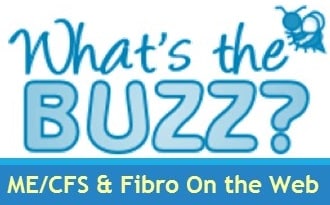 Each month we scour the Internet and bring you a list of news articles, blogs and research publications we think you’ll find interesting for our What’s the Buzz post. Occasionally, we’ll highlight and summarize a few of them for you, like these:
Each month we scour the Internet and bring you a list of news articles, blogs and research publications we think you’ll find interesting for our What’s the Buzz post. Occasionally, we’ll highlight and summarize a few of them for you, like these:
Ōuraring – Best of Innovations!

Read about Kari Kivela, one of the Ōuraring makers:
https://mashable.com/2016/01/08/fitness-tech-ces-2016/#lakqP1KCikq0
Read about our Ōuraring sleep study HERE
_________
Acute Infection Causes Chronic Consequences for Sleep
Many patients remember the day they were sick with a severe flu-like illness that never went away. It is clear that acute infection (with a variety of viral and bacterial pathogens) can cause chronic diseases characterized by debilitating fatigue, pain and cognitive impairment. This paper published in 2011 by Drs. Harvey Moldofsky and John Patcai demonstrated that infection has long term affects on sleep. There was an outbreak of Severe Acute Respiratory Syndrome (SARS) in Toronto in 2003. Moldofsky and Patcai studied health care workers infected with SARS who became chronically ill and unable to return to work. They found that sleep was nonrestorative and characterized by abnormalities in REM and electrical activity patterns. It is plausible that disruption to sleep can be causally related to the other post-SARS symptoms of chronic fatigue, pain, weakness and depression.
You can read the full text of this paper here: https://www.ncbi.nlm.nih.gov/pubmed/21435231
__________
PACE Trial being Put Through its Paces
The PACE trial was a large-scale five-year trial funded by the UK government which compared the efficacy and safety of four treatments: specialist medical care (SMC), SMC with CBT, SMC with GET, and SMC with adaptive pacing therapy (APT). The results were published in February 2011 and have been the subject of controversy ever since. In recent news
- Journalists Julie Rehmeyer and Dr. David Tuller have published an analysis concluding that the PACE trial failed to demonstrate the safety of graded exercise therapy, despite its authors claiming that it was a safe treatment for patients with chronic fatigue syndrome (CFS). READ MORE
- Professor James Coyne has made a request to PLOS One that they enforce their data-sharing policy upon the authors of the PACE trial, who published one of their papers in the journal. Read more HERE and HERE
- MEadvocacy.org, along with 11 other U.S. ME/CFS organizations, have signed a letter sent to officials at HHS calling for an investigation into the flawed PACE trial. The letter also asks that the CDC remove all recommendations based on PACE and other Oxford studies from its medical education material. READ MORE
Other News:
FM related articles:
- Physiological parameters as a tool in the diagnosis of fibromyalgia syndrome in females: A preliminary study
https://www.ncbi.nlm.nih.gov/pubmed/26685758 - Foundation of Fibromyalgia Is Altered Central Nervous System, New Study Validates
https://nationalpainreport.com/foundation-of-fibromyalgia-is-altered-central-nervous-system-new-study-validates-8827896.html
ME/CFS related articles:
- A Link Between the Gut Microbiome and Post-Exertional Malaise
https://batemanhornecenter.org/link-between-gut-microbiome-and-pem

 Lucinda Bateman, MD, is a renowned clinician, researcher, and educator. Her Johns Hopkins University Medical School training instilled an approach to care that she has employed throughout her career - the patient comes first and the unknown or unexplained does not equate to a lack of proper and compassionate care. Since starting her own practice in 2000, she has served on six boards or committees, been the principal investigator for 45 studies, authored/coauthored 40 journal articles, served as adjunct instructor and adjunct assistant professor in the University of Utah Departments of Preventative Medicine, Internal Medicine, and Anesthesiology, and lectured around the world.
Lucinda Bateman, MD, is a renowned clinician, researcher, and educator. Her Johns Hopkins University Medical School training instilled an approach to care that she has employed throughout her career - the patient comes first and the unknown or unexplained does not equate to a lack of proper and compassionate care. Since starting her own practice in 2000, she has served on six boards or committees, been the principal investigator for 45 studies, authored/coauthored 40 journal articles, served as adjunct instructor and adjunct assistant professor in the University of Utah Departments of Preventative Medicine, Internal Medicine, and Anesthesiology, and lectured around the world.